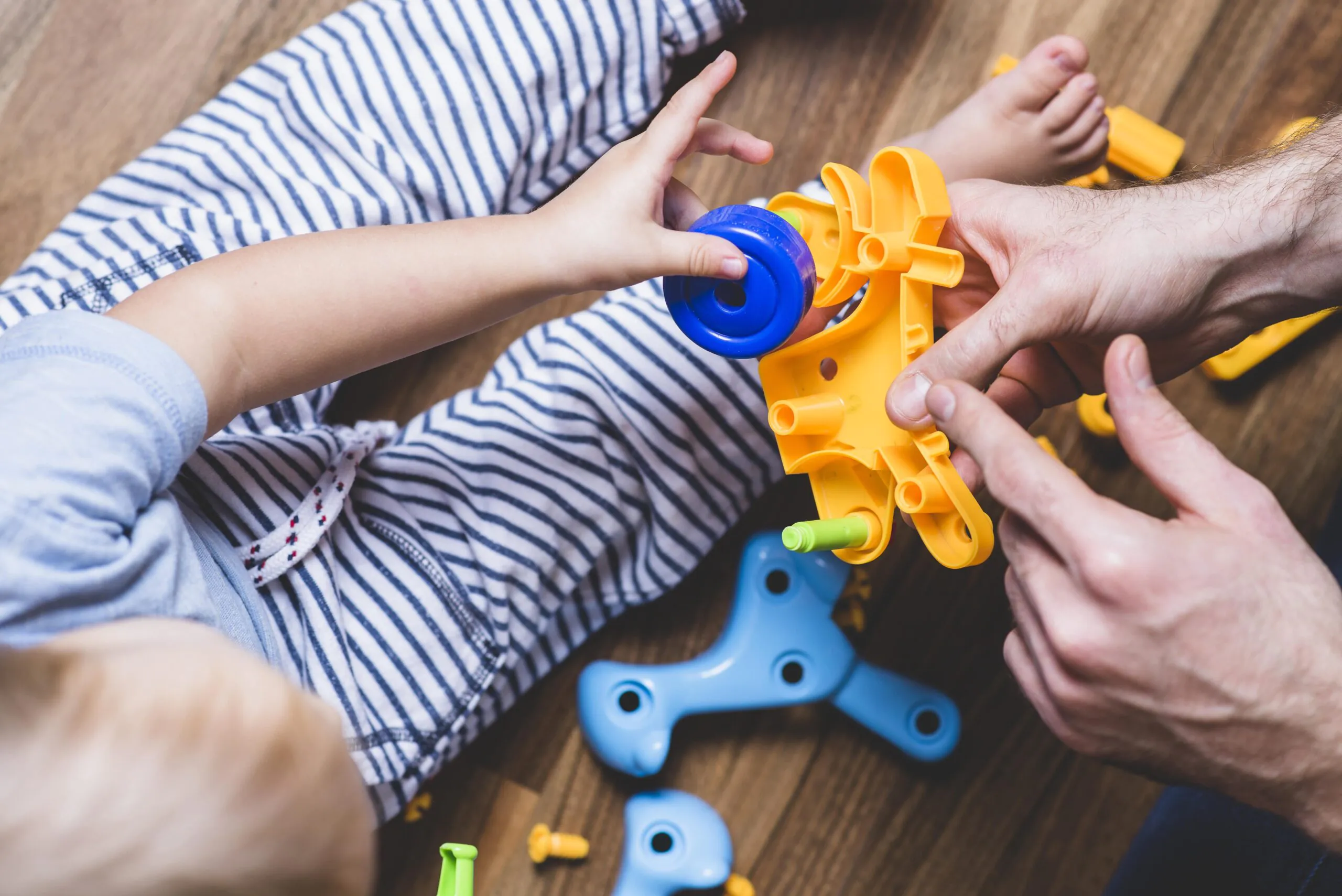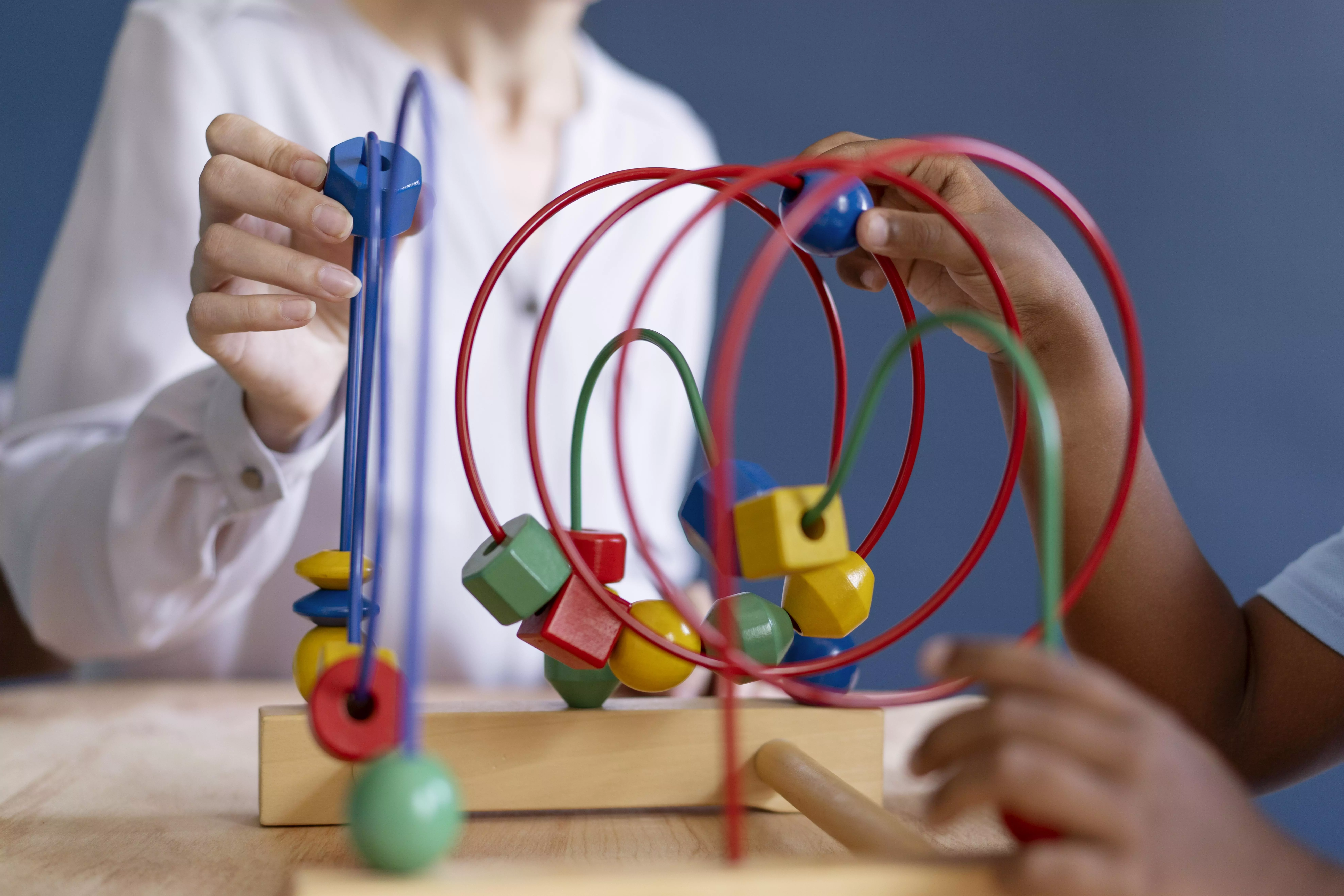What is Play Therapy?
Play therapy is a specialized function that focuses on helping children express their needs through play and toys.
What ‘psychological counseling’ is to adults, ‘play therapy’ is to children.
Adults express their problems in words, children express their problems through play.
The therapist uses play as a tool, which is the child’s most natural way of expressing himself/herself.
Children, in turn, express their feelings to the therapist with the help of toys.
With a trained play therapist creating a safe environment, children are encouraged to play as they wish.
During therapy, children are offered a variety of toys to express their emotional problems.
Children have the chance to express themselves using various tools of play therapy such as art, sand and imagination.
What are the Benefits of Play Therapy?
Children cannot make sense of their feelings like adults, nor can they talk about their feelings like adults.
Therefore, therapy with adults is not suitable for children.
When play is used as therapy for children, they have the opportunity to express their experiences and feelings.
During play, children recreate their anger, fears, sadness, frustrations, which affect their behavior as part of their experiences.
The advantage of play therapy is that children can create therapeutic play appropriate to their development.
When children create play that reflects their stressful, intense, emotional experience, the therapeutic relationship between the therapist and the child is the most important element that makes the child feel safe.
In Which Situations Should Play Therapy be Preferred?
Some children may go through a difficult period at certain times in their lives.
For example, separation of parents, difficulty making friends, inability to adapt to changes at school or at home, irritability, introversion, etc…
Some children may need more help than others during these times.
If you are having problems communicating with your child or if you think there are problems with some of his/her behaviors, play therapy can help you and your child.
Here are some of the situations where play therapy can help;
- Post Traumatic Stress Disorder
- Abnormally high levels of emotions such as anxiety, sadness, fear, anger
- Attention deficit and hyperactivity
- Acting in ways that hurt others or themselves
- Overreacting when parents separate-social withdrawal
- Lack of confidence/depression
- Difficulty adapting to changes in the family
- Unexplained head and abdominal pains

What are the Types of Play Therapy?
The types of play therapy can vary according to the therapist’s preferences, target audience and therapeutic goals.
In general, however, play therapy can include several basic approaches.
Here are some types of play therapy:
- Individual Play Therapy: This approach involves the therapist working one-to-one with the individual.
Individual play therapy focuses on the specific needs of the individual and emphasizes a safe relationship between the therapist and the individual. - Group Play Therapy: This type of therapy involves a group of individuals coming together to interact through games.
Group play therapy can be used to improve social skills, increase communication and understand group dynamics. - Family Play Therapy: This approach uses games to strengthen relationships and interactions between family members.
Family play therapy can be effective for increasing communication within the family, solving problems and strengthening the bonds between family members. - Art Therapy Play therapy is a type of therapy that focuses exclusively on non-verbal means of expression.
This may include expressing emotions through painting, sculpture, music or other creative art activities. - Dramatherapy (Role Play): This type of therapy helps individuals explore their emotional expression through role-playing.
Role plays allow individuals to understand others’ perspectives and express their own feelings. - Play and Activity Based Therapeutic Skills Programs: Therapeutic Skills Programs include games and activities to help individuals develop skills such as learning, problem solving and emotional regulation.
Each type of play therapy is designed to address specific goals and the therapist can choose one or more approaches that suit the individual’s needs and therapeutic goals.
How is Play Therapy Applied?
Play therapy usually takes place under the guidance of a therapist and can include a variety of games, art activities, role-playing and other creative activities.
This process can help the individual to understand, express and resolve the emotional difficulties they are experiencing.
This type of therapy is particularly effective in working with children because they often find it difficult to express their feelings verbally.
Through games, children can express their emotional world and their therapist can use the themes and behaviors that emerge during these games to help understand the difficulties the child is experiencing.
Who Can Do Play Therapy?
Play therapy is a type of therapy used especially by therapists working with children.
It is important that the specialists who can apply it are also trained in play therapy.
- Clinical Psychologists: Clinical psychologists specializing in children can use this method after receiving training in play therapy.
- Psychiatrists Child and adolescent psychiatrists can also practice play therapy or work with children as part of it.
- Child Development Professionals: Professionals specializing in child development can apply this therapy if they have received training in play therapy.
What is the Age Range of Play Therapy?
Play therapy is usually practiced for children between the ages of 3 and 12.
In this age range, children may find it difficult to express their feelings and thoughts, so play therapy helps children to express themselves through natural play processes.
However, play therapy is not limited to this age group.
For younger children (around 2 years old), adapted play therapy methods can also be used.
Play therapy can also be used as a tool for adolescents and some adults, especially those who are experiencing trauma, anxiety and other emotional difficulties.
It is important that the therapy is adapted to the age and needs of the person.
This content was prepared with the contributions of Clinical Psychologist Deniz Tetir.
Frequently Asked Questions
How Many Months Does Play Therapy Take?
The process of play therapy depends on a wide range of factors related to the child’s past and present experiences.
The two most important factors are the developmental stage of the child and, if there has been any trauma, the age at which the trauma occurred.
Generally, the sooner the child comes to therapy after the event, the shorter the therapy time.
Can Play Therapy be done at Home?
Play therapy is different from the way children play at home.
At home or in therapy, the main function of play remains the same.
For children, play is a natural way of communicating, in a sense rehearsing the world they live in and their human relationships.
Play has three functions: The first two are conceptual and physical development and the other is emotional expression.
With a trained play therapist, play serves the emotional purpose.
This plays an important role in the balance of the child’s health.





